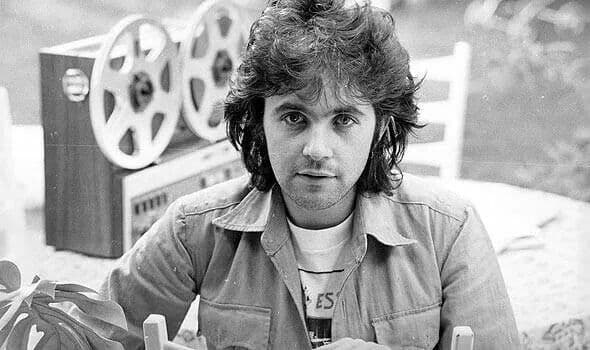
A Cold, Calculated Farewell to Opportunism
“Goodnight and Thank You”, sung by David Essex (as Che) and Elaine Paige (as Eva), is a piercingly pragmatic moment from the 1978 Original London Cast of the musical Evita, composed by Andrew Lloyd Webber with lyrics by Tim Rice. Featured on the cast recording of Evita, the song isn’t known for chart-topping success, but for its dramatic storytelling and its place in one of musical theatre’s most morally ambiguous and compelling scores.
In the original London production, which opened in June 1978 at the Prince Edward Theatre, David Essex took on the role of Che — the cynical everyman narrator — opposite Elaine Paige as Eva Perón. The cast album, released the same year, became a cornerstone in the show’s legacy.
At its heart, “Goodnight and Thank You” is a montage of calculated departures: Eva Perón’s farewell to each lover who helped elevate her from obscurity toward power. In the role of Che, David Essex delivers lines that drip with detached observation and wry cynicism, commenting on Eva’s relentless ambition: she deploys relationships like stepping stones, discarding each one with a cold, formulaic “goodnight—and thank you.” As the lovers come and go, the song becomes a kind of social ledger, chronicling how affection, intimacy, and manipulation intermingle in Eva’s ascent.
Musically, the number diverges from the more soaring, emotionally grand moments of Evita. It feels brisk, clipped, almost mechanical in its delivery — reflecting the transactional nature of what Che is describing. The urgency lies not in longing, but in the relentless forward motion of Eva’s climb. There’s something unsettling about the way the melody supports Che’s Words; it’s not romantic, but reflective, part reportage and part moral commentary.
Lyrically, Tim Rice weaves in repeated polite phrases — “please,” “thank you” — ironic in this context. These are not words of genuine gratitude, but polite refrains masking cold social maneuvering. Each “thank you” echoes not devotion but a dismissive acknowledgment: “You served your purpose; now you’re no longer needed.” Che’s detached narration underscores the harsh pragmatism of Eva’s relationships, holding a mirror up to her ambition.
From a narrative standpoint, the song is a watershed moment in Evita. According to a guide from London Theatre, it follows Eva’s brief relationship with Magaldi, a tango singer, marking her first taste of fame, but also her willingness to move on as soon as a more advantageous opportunity arises. In other words, this isn’t love lost; it’s a contract fulfilled and terminated.
On a character level, Essex’s Che is more than a mere outsider — he’s a truth-teller. His voice carries the weight of someone who’s seen the pattern before, someone morally skeptical of Eva’s methods but unable (or unwilling) to stop her. His “goodnight” feels like the world quietly acknowledging her ruthlessness, even as they can’t quite deny her brilliance.
Culturally, “Goodnight and Thank You” resonates as a meditation on power, ambition, and transactional relationships. It’s a reminder — both within the story of Evita and for listeners beyond the theatre — that climbing to the top often demands ruthless pragmatism. The song doesn’t romanticize Eva’s rise; it scrutinizes it, holding a spotlight on the ethics of ambition.
In the pantheon of Evita songs, which includes the sprawling drama of “Don’t Cry for Me Argentina” and the swagger of “Oh What a Circus,” “Goodnight and Thank You” stands apart as a moment of chilling clarity. David Essex’s calm, observant voice guides us through Eva’s strategic goodbyes, and in doing so, forces us to confront the cost of her ascent — not just to those she leaves behind, but to the soul she’s building for herself.